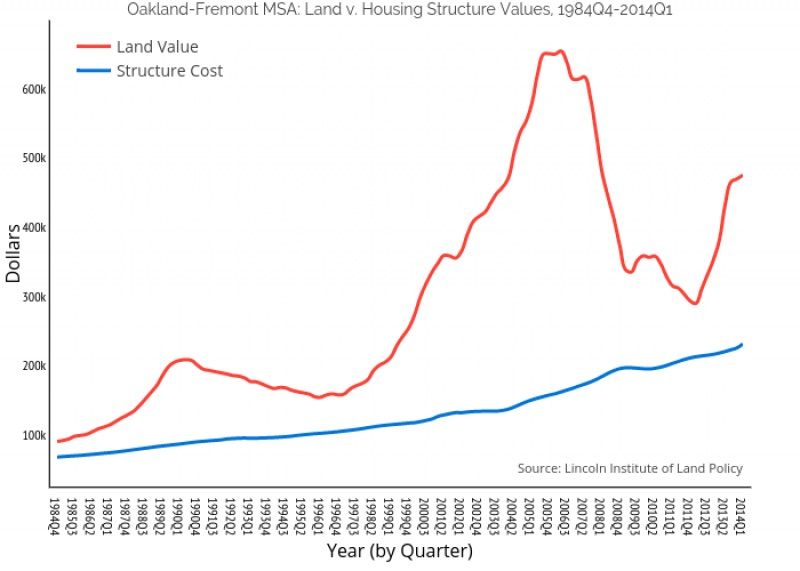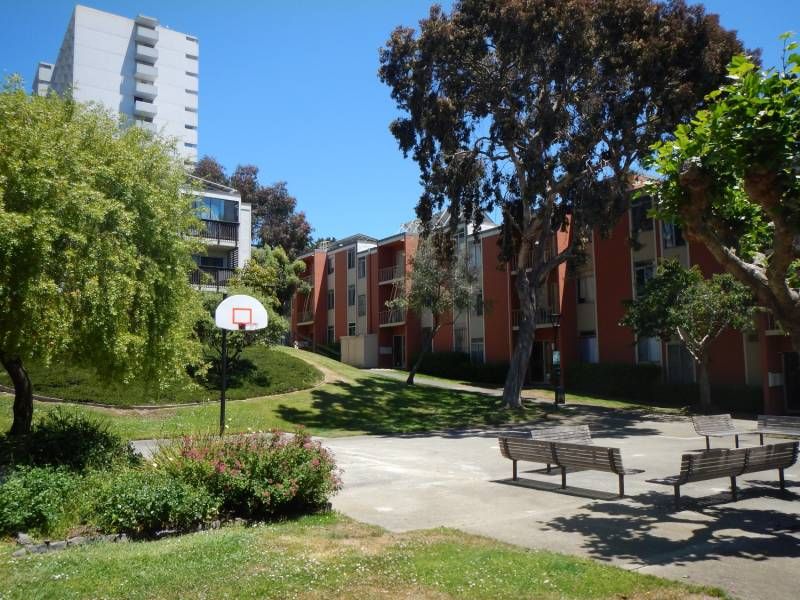How is the BSC different than a landlord?
Landlords utilize the land and/or buildings they control to extract wealth from tenants' rents. Most landlords seek to maximize their profit.
Landlords and the Bay Area Housing Market #
In the Bay Area, demand for housing is extremely high. San Francisco and the East Bay have gained jobs eight times faster than housing since 2010.[1] Lots of people are not only looking for a place to live, but also have to compete with the interests of investors, who generally want to make as much money as possible.
In 2019, a group of Black mothers, "Moms 4 Housing," and their children moved into a vacant, investor-owned house on Magnolia St. in Oakland. The home had been purchased by the real estate investment company Wedgewood Properties two years before they started squatting there, and had sat empty the entire time.
“There are four times as many empty homes in Oakland as there are homeless people,” pointed out one of the mothers, Sameerah Karim.[2]
After a months long fight in the courts and a mass mobilization of people to defend the house, the families were evicted by a militarized deployment of the Alameda County Sheriff's Department in early 2020. (As a result of community pressure, Wedgewood sold the house to the Oakland Community Land Trust.)[3]
The OCLT, which is affiliated with the City of Oakland, provides the following graph comparing the costs of maintaining a structure in the East Bay to the rapidly fluctuating speculative value of the land itself:

Thus, the price of rent is generally based on land value, not the actual costs of maintaining a building — water, electricity, maintenance, and taxes. The difference between these costs and the market rent price is landlords' profit.
Co-operative Housing Models #

Cost Savings #
In a co-operative housing structure, by contrast, rent prices are supposed to be fixed to expenses.[4]
In the simplest structure, where a group of people own a house, revenues are primarily used to pay for utilities and maintenance, without the need to produce a profit. In the BSC, revenue is also used to reduce the rent of compensated managers, and pay the salaries of employees (the co-op's largest expense).[5]
When the primary goal is to provide and maintain housing, rather than generate profit, savings should be passed on to members.
Democratic Member Control #
Most tenants have no control over their landlords' operations. A small number of (usually non-profit) landlords have tenant advisory boards, or offer several tenants positions on the organization's board. In these cases, tenants usually are a minority on the governing body.
Tenants may also unionize to gain more leverage in negotiating with the landlord for better conditions or lower rent, often by going on "rent strike" (collectively withholding their rent) until demands are met.[6]
In the ideal form of co-operative housing, members "are" their own landlord, as they fully control the organization.
In the BSC, this member-ownership is exercised through the election of representatives to the board of directors. (The BSC's structure and the rights of its member-owners have changed significantly over time.)
Adam Brinklow, SF added jobs eight times faster than housing since 2010, Curbed ↩︎
Rebecca Burns, "Oakland’s Moms 4 Housing Were Evicted by a Giant Corporation That Runs National Home-Flipping Operation,", The Intercept ↩︎
Stella Chan and Darran Simon, "'Moms 4 Housing' reaches agreement for the sale of the vacant Oakland home they were evicted from," CNN ↩︎
Large co-ops with many expenses are often influenced by the market rate when setting their prices. The BSC, for example, compares its rates to those of the UC dorms, which tend to be among the highest in the area for shared bedrooms. This can sometimes influence decisions to hire more staff or increase rents, if it is viewed relative to these prices. In areas where land values are high, this often drives up labor costs; if employees cannot live in the co-op, they will have to pay a lot for housing. ↩︎
As of 2020. Source: 2020 BSC Annual Report ↩︎
Leslie Valentine, Unidos en la Lucha (United in Struggle) – Residentes Unidos: A tenant Union Story ↩︎